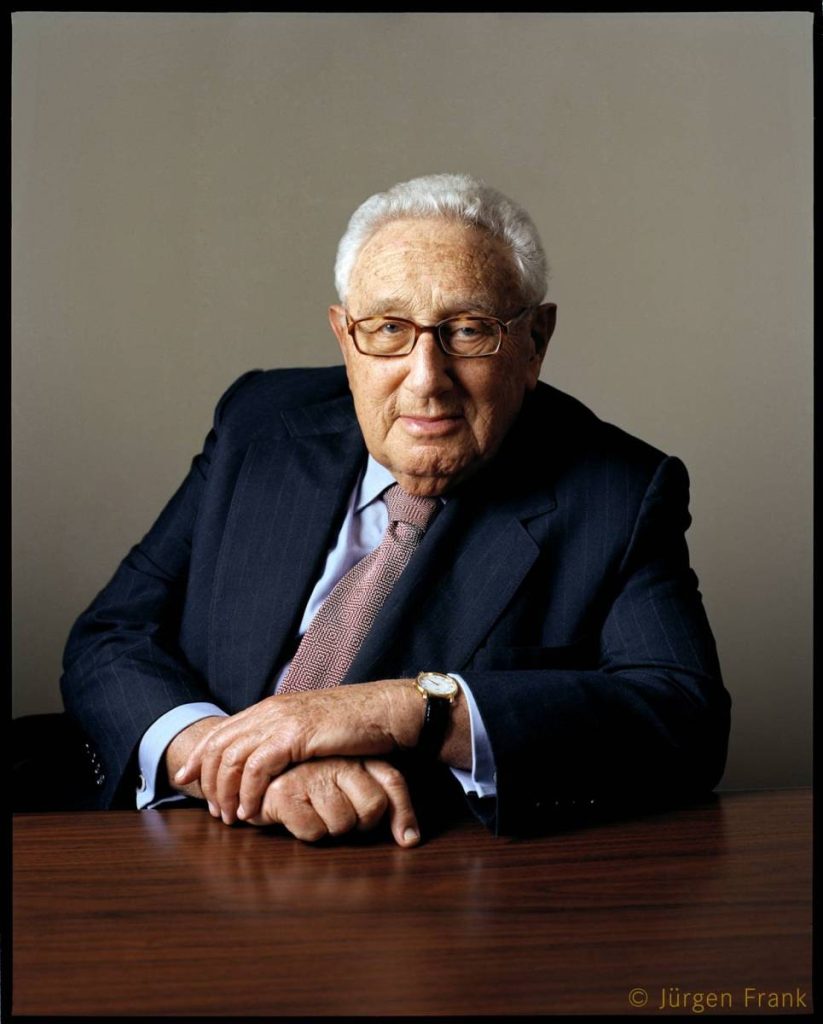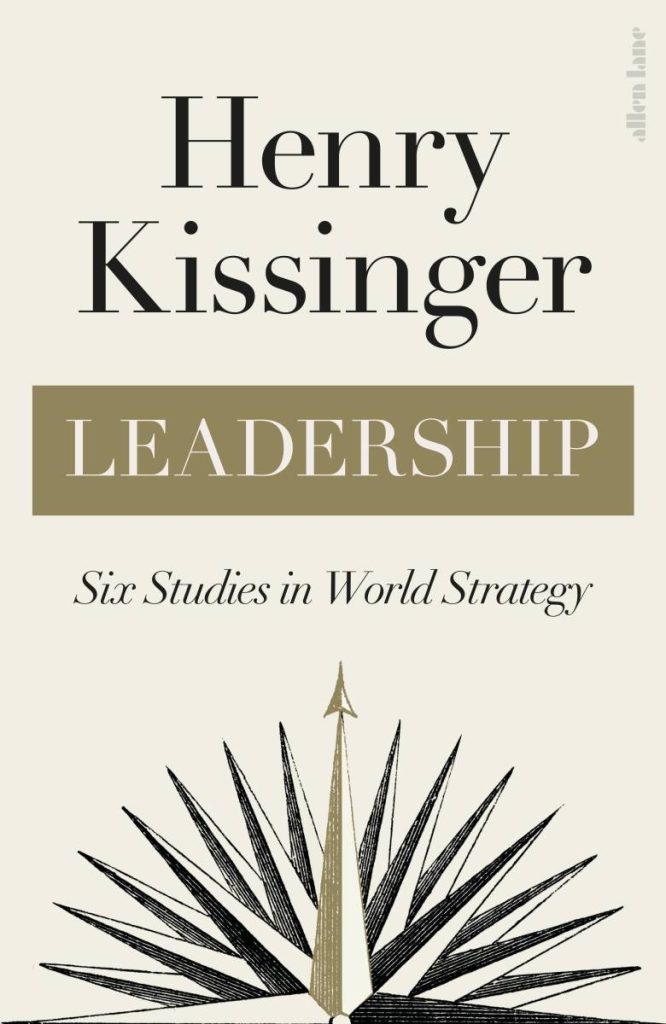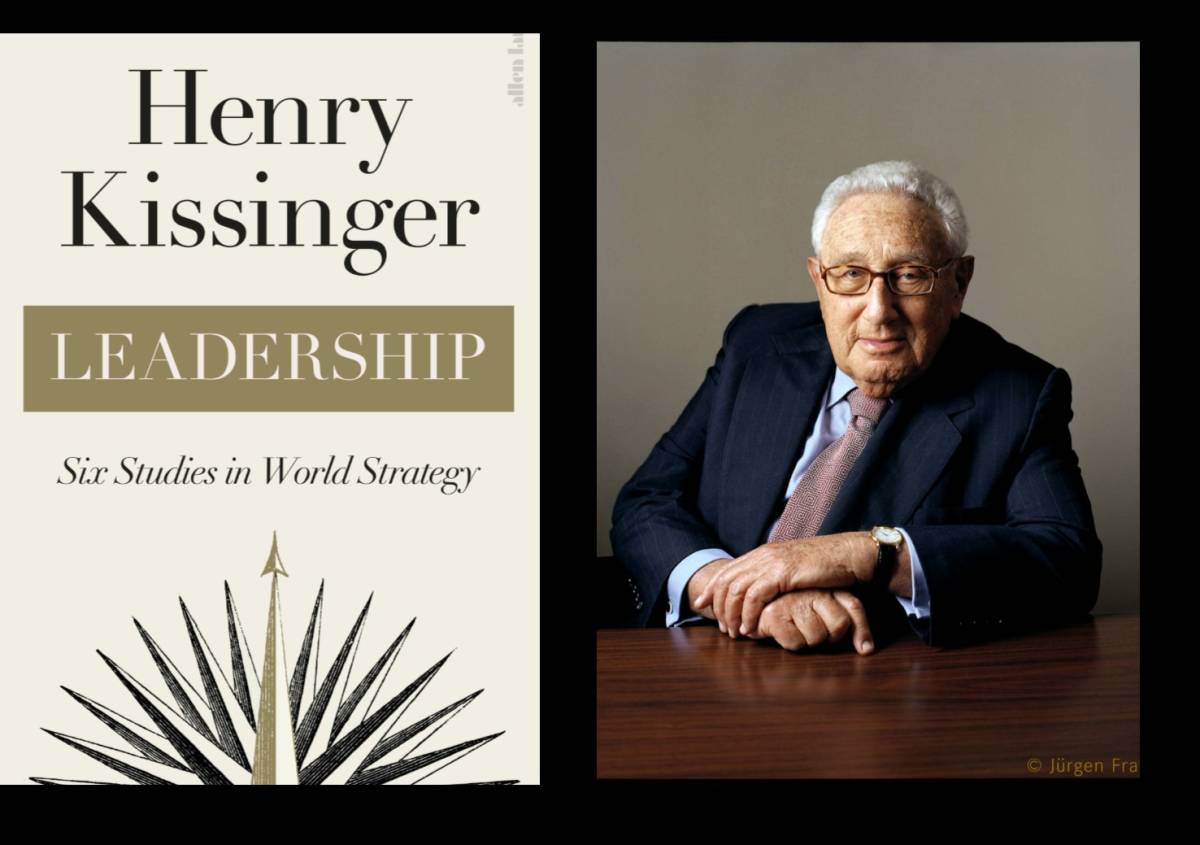Leaders with visions are able to create strategies to reform societies. It is quite natural for them to face problems and find solutions. Success is abstract and the book is an attempt to compile the success of six leaders … reports Anasudhin Azeez
Former Secretary of State and National Security Advisor of the US Dr Henry Kissinger believes that leaders without a vision are putting people in trouble.

Addressing a press meet organised by Foreign Press Association (FPA) in London as part of his book release, Kissinger said, “Transformational changes are taking place across the world. My book, ‘Leadership: Six Studies in World Strategy’, is my concern about the changes. Leaders with visions are able to create strategies to reform societies. It is quite natural for them to face problems and find solutions. Success is abstract and the book is an attempt to compile the success of six leaders.”
Responding to a question on Ukraine, 99-year-old Kissinger said leaders should have a clear idea about their political objectives and should be aware about the military situation. “You can’t simply go on fighting without any objective,” he added.
In May 2022, speaking at the World Economic Forum, Kissinger advocated for a diplomatic settlement that would restore status quo, effectively ceding Crimea and the occupied territories of Ukraine to Russian control.
Kissinger also urged Ukrainians to “match the heroism they have shown with wisdom,” arguing that “pursuing the war beyond that point would not be about the freedom of Ukraine, but a new war against Russia itself.”
However, Ukrainian President Volodymyr Zelenskyy rejected Kissinger’s suggestions, saying Ukraine would not agree to peace until Russia agreed to return Crimea and the Donbas region to Ukraine.
In his latest book, Kissinger analyses the lives of six extraordinary leaders through the distinctive strategies of statecraft which he believes they embodied. After the World War II, Konrad Adenauer, the first chancellor of West Germany, brought defeated and morally bankrupt Germany back into the community of nations by what Kissinger calls ‘the strategy of humility’.
According to Kissinger, Charles de Gaulle set France beside the victorious Allies and renewed its historic grandeur by ‘the strategy of will’.
During the Cold War, US President Richard Nixon gave geostrategic advantage to the United States by ‘the strategy of equilibrium’.
Regarding the Egyptian leader Anwar Sadat, he said the assassinated leader brought a vision of peace to the Middle East by a ‘strategy of transcendence’.
Against the odds, Singapore’s first prime minister Lee Kwan Yew created a powerhouse city-state by ‘the strategy of excellence’.
In the book, he has praised British Prime Minister Margaret Thatcher for her determination to stay with the US despite opposition from her own party. Kissinger said that Thatcher wanted Britain to be a bridge between the US and Europe.
“Although when she came to power Britain was known as ‘the sick man of Europe’, Thatcher renewed her country’s morale and international position by ‘the strategy of conviction,’” he said.
To each of these studies, Kissinger brings historical perception, public experience and – because he knew each of their subjects and participated in many of the events he describes as personal knowledge. The book is enriched by insights and judgements such as only he could make, and concludes with his reflections on world order and the indispensability of leadership today.















